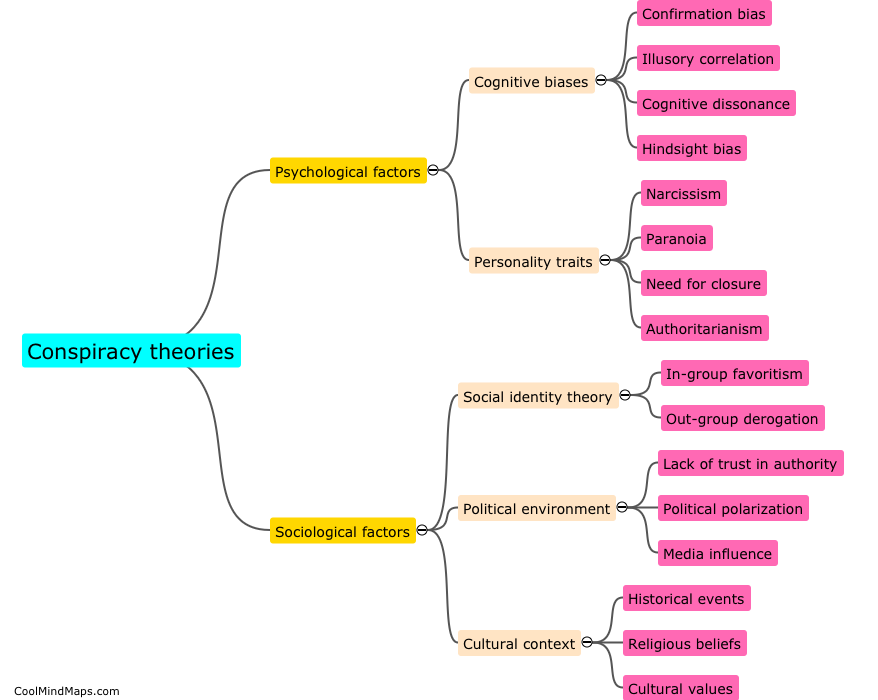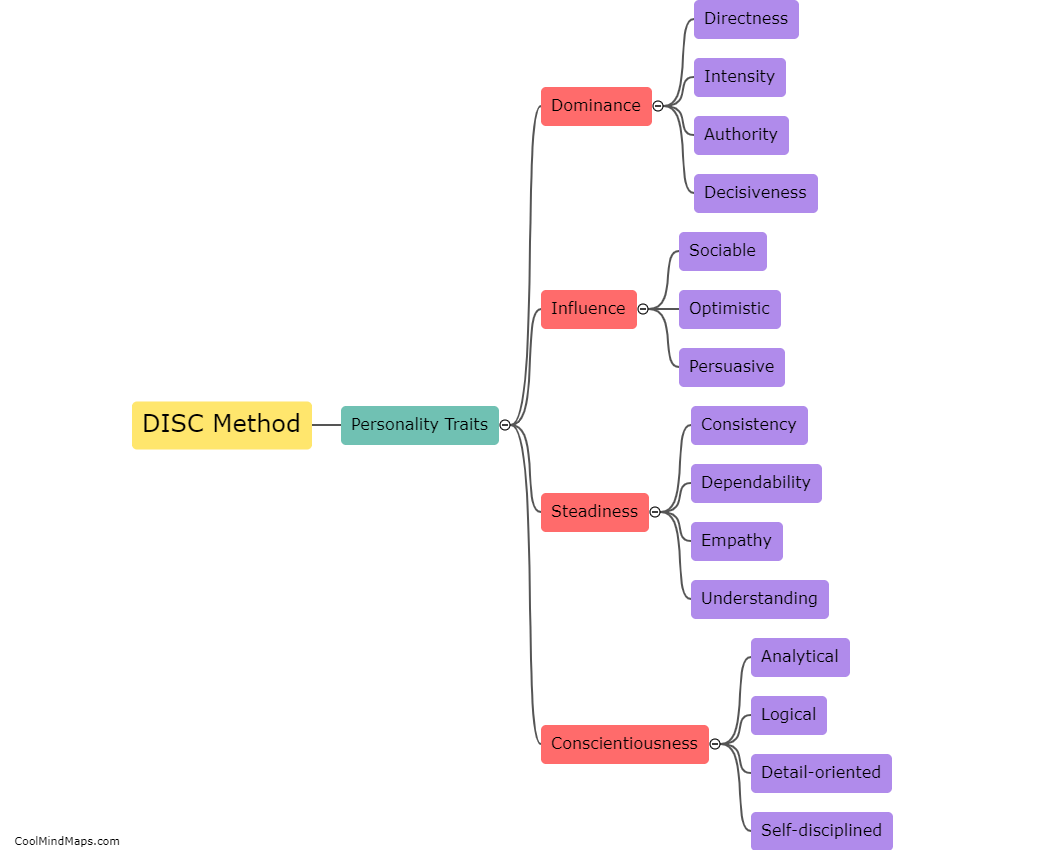Psychological and sociological factors behind conspiracy theories.
Psychological and sociological factors can play a significant role in the emergence and perpetuation of conspiracy theories. From a psychological perspective, individuals who tend to believe in conspiracy theories often have a strong desire for control, a sense of persecution, and a high level of distrust towards authority figures. These individuals may also be more likely to engage in selective thinking, confirmation bias, and a lack of critical thinking skills. From a sociological perspective, conspiracy theories can emerge in groups that feel marginalized or disadvantaged, as a way to explain their position in society or to identify a common enemy. These theories can also be spread through social networks and online communities, where they can be amplified and reinforced through groupthink and echo chambers.

This mind map was published on 12 June 2023 and has been viewed 122 times.











